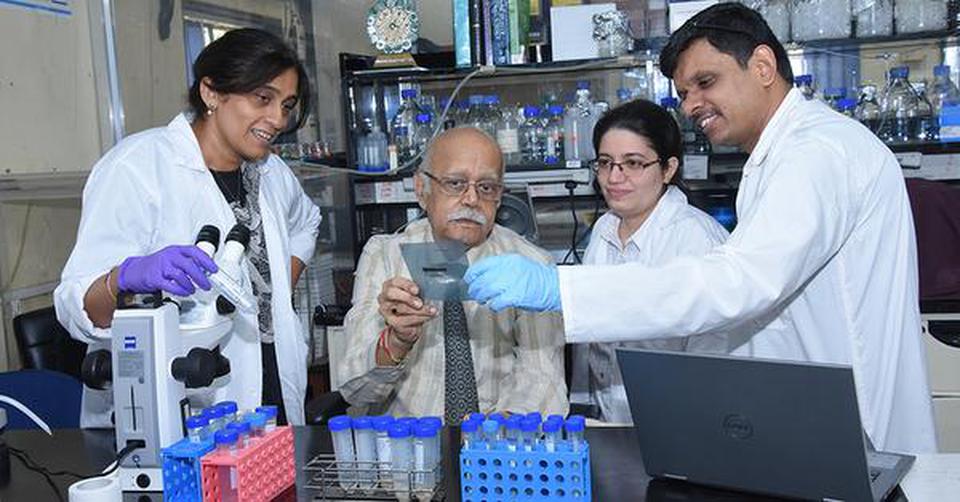
In a surprising discovery, researchers at the Tata Institute of Fundamental Research (TIFR) Mumbai have found a novel function for serotonin (a chemical that signals between neurons). The recent discovery establishes that serotonin is involved in the generation of new mitochondria (the powerhouse of the cell) in neurons, increased cellular respiration and fuel (ATP) in the cell. Serotonin’s newly indentified function has been studied in mice and rats. If found to be true in humans, which is likely to be the case, it may have important medical implications.
“We cultured neurons and looked at the effects after adding serotonin, and found really unexpected results. We knew we had stumbled on something very interesting. These finds were confirmed and validated through extensive experiments,” Prof. Vaidya recalls. The results of the study were published in the journal Proceedings of the National Academy of Sciences (PNAS).
Underlying mechanism
At the level of an organism, serotonin is known to be involved in coping with stress. However, the underlying mechanism of its neuro-protective role was unknown. The team, jointly led by Vidita A. Vaidya and Ullas Kolthur-Seetharam from TIFR, in collaboration with Ashok Vaidya from KHS, provides insights into how serotonin generates more mitochondria thereby giving neurons the capacity to produce more energy and the ability to cope with stress better.
More than three decades ago researchers had speculated that serotonin could have antioxidant-like effects. But this was not experimentally proved. “We found that serotonin reduces reactive oxygen species, thus providing neuroprotection against cellular stress. Serotonin can impact the manner in which neurons grapple with stress and affect the trajectory of ageing,” said Prof. Vaidya. Neuronal loss is a major cause of neurodegenerative diseases such as in Alzheimer’s and Parkinson’s. Abnormal mitochondrial functions are known to cause or contribute to neuronal death. The new findings from TIFR raise the possibility that serotonin signalling could be used to prevent mitochondrial abnormalities and neuronal loss. Unlike other cells, neurons are not generated continuously and so identifying factors that increase mitochondrial health is key to prevent ageing-associated neurological diseases.
Experimental proof
“Neurons exposed to serotonin not only produced more fuel (ATP), even the efficiency of mitochondrial output in these neurons was higher,” said Prof. Kolthur-Seetharam, joint senior author of the paper. This was seen in experiments done both in tissue culture and rats/mice. Neurons have 14 receptors for serotonin, but only when serotonin binds to a specific receptor (5-HT2A) does it activate SIRT1 (a very important particular longevity factor/gene) that produces new mitochondria and more ATP in neurons. “Under in vitro conditions, neurons treated with a drug to block the 5-HT2A receptor as well as neurons that lacked the receptor abolished all the beneficial effects of serotonin on mitochondria. Further, in rats, activating the receptor using a drug enhanced the mitochondrial function,” said Dr. Sashaina Fanibunda. Using mutant mice that did not have the SIRT1 protein in the cortex, stimulating the 5-HT2A receptor did not lead to enhanced mitochondrial function. Injecting serotonin directly into the brain of rats led to direct increase in mitochondria number and ATP level. Beneficial effects of serotonin were seen by genetically increasing it in the brain of 13-to 15-month-old mice. “With age, levels of serotonin, SIRT1 and mitochondria go down; the function of mitochondria also goes down. Thus supplying more serotonin could restore mitochondrial functions even in old mice,” said Prof. Kolthur-Seetharam. “This study paves way for further research into designing therapeutic interventions by combined activation of serotonin and SIRT1 either through pharmacological approaches or coupling approved drugs that activate serotonin signalling with dietary interventions like calorie restriction. This may help tackle mood disorders and age-associated neurological decline,” said Prof. Kolthur- Seetharam.